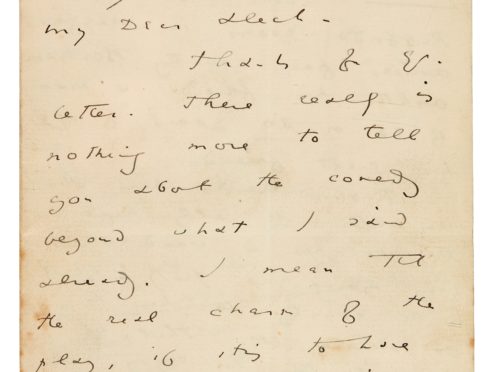The first written record of what would become Oscar Wilde’s final play, The Importance Of Being Earnest, is going under the hammer.
The earliest plot summary for the play, his most enduringly popular, could fetch £150,000 at Sotheby’s books and manuscripts sale.
It was outlined in a handwritten letter by the wit and playwright to the impresario George Alexander, who would go on to produce the play.
Wilde penned the act-by-act summary of his new play in July 1894 when he was at the height of his success as a dramatist.

But the play opened, after many revisions, on February 14 1895, when Wilde’s own life was spiralling out of control.
Months later, Wilde was in prison after being convicted of gross indecency and his plays were off the stage.
Gabriel Heaton, Sotheby’s books and manuscript specialist, said the letter, “in which Oscar Wilde sketches out the embryonic plot of The Importance Of Being Earnest for the first time, reveals a writer at the height of his powers”.
He writes “with great assurance and confidence, and with many flashes of his characteristic wit, as he lays out the structure of his comedy of double lives.
“There is also a great poignancy as we know how little time Wilde had left to enjoy his success on the commercial stage.”
Wilde served two years in prison, with hard labour.
He later went into exile in France and died aged 46, in 1900.
